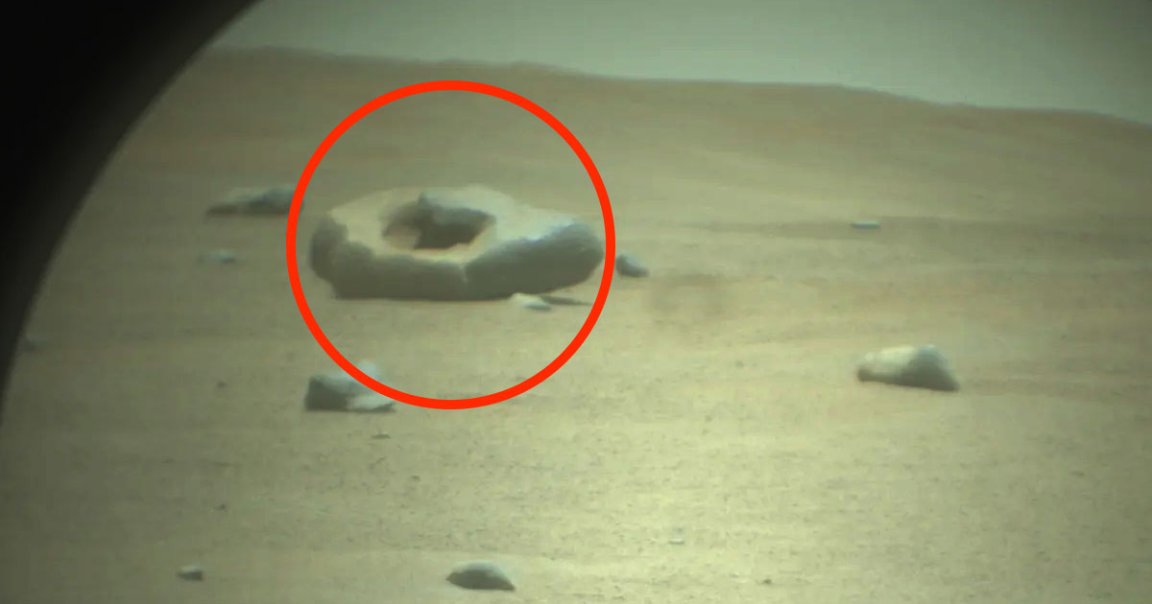
Donut Know
Earlier this month, NASA’s Perseverance Mars rover spotted a mysterious donut-shaped rock in the distance during a trip across the delta of the planet’s Jezero Crater, which scientists believe is an ancient dried-up lake.
The object, which appeared to be roughly 330 feet from the rover, is at least ten inches across and has a significant hole punched through the middle.
The odd rock has puzzled scientists, CNN reports, who are now attempting to explain how it could have ended up that way on the Red Planet’s desolate surface.
Nothing Special
Experts are divided on the rock’s origins. Some argue it’s a meteorite that got its shape after blazing through the Martian atmosphere, while others say it’s evidence of the roaring rivers believed to have surged across the planet’s surface in the distant past.
“I can’t say with absolute, 100 percent certainty it’s not a meteorite, but I think it’s highly unlikely,” Jim Rice, an assistant research scientist in the School of Earth and Space Exploration at Arizona State University, told CNN. “The reason I say that is because, this region we’re in, we see a lot of rocks that have these kind of hollowed-out interiors.”
According to Rice, these kinds of rocks “were brought in by floods by this big river channel, the Neretva Vallis — that’s the channel that brought all the water and the rocks and sediment in there.”
In short, it may look odd to the unsuspecting eye, but “really, scientifically, it’s not anything special,” Rice argued.
Meteorite Mystery
But not everybody agrees with that assessment. Pascal Lee, a senior planetary scientist at the SETI Institute, told CNN that the donut may have been a meteorite in which the weaker material in its interior eroded over time.
It wouldn’t be the first potential meteorite Perseverance has spotted. Just a few weeks into its journey across the Red Planet, the rover examined and zapped a rock that closely resembled a meteorite.
Alternatively, it could’ve been “thrown away from another part of Mars by the impact of a large asteroid,” Lee told CNN.
While the planetary scientist argued that Perseverance should take the time to have a closer look at the rock, the team operating the rover hasn’t announced any plans to do so.
And that’s a shame, because if they don’t, there’s a good chance we’ll never find out more about the mysterious rock’s origins.
More on Perseverance: NASA Gets Amazing New Results Generating Oxygen on Mars